
Watch this four-minute simulation:
Key point: The strength of memories fades over time, but not at the same rate
When you learn something, you create a memory. The strength of that memory fades over time, and can be lost.
The chart below shows memory strength on the left and time on the bottom:
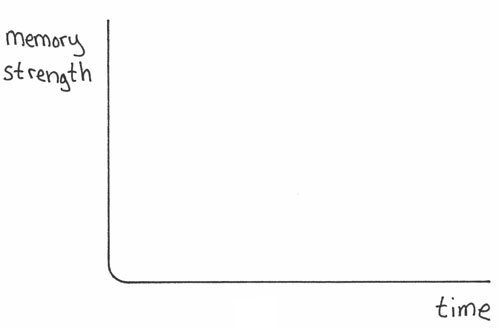
When you first learn something, the memory is very strong.
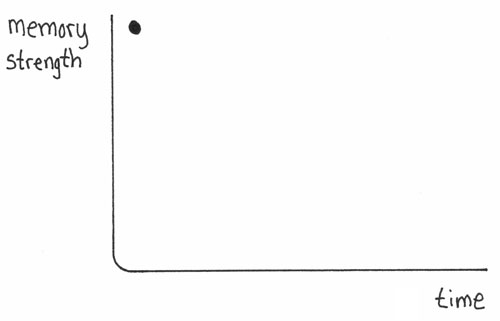
As time goes on the strength of the memory decreases:
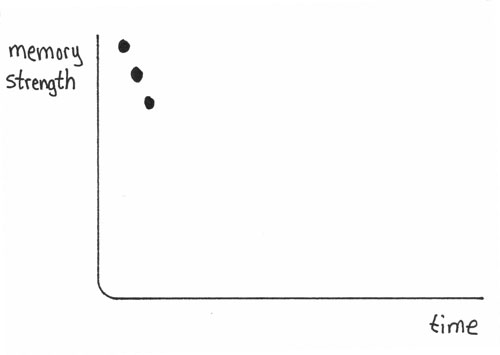
From experiments we know that memory strength fades quickly at first, resulting in a line that looks more like this:
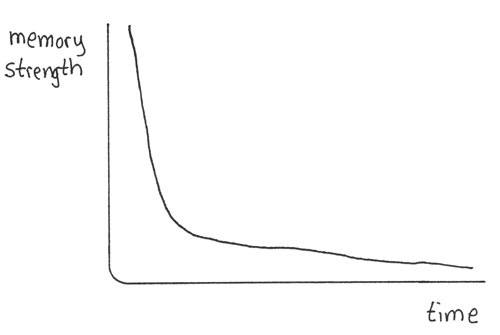
If the line goes too low, the memory is lost:
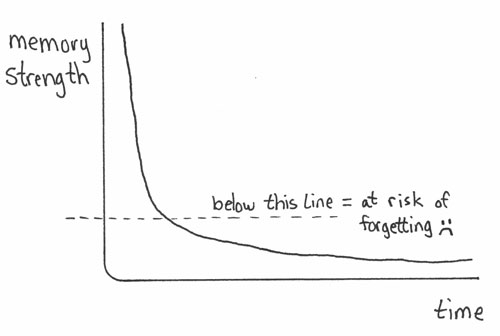
In order to prevent memory death, you must refresh it before you lose it. Here's a good time to review:
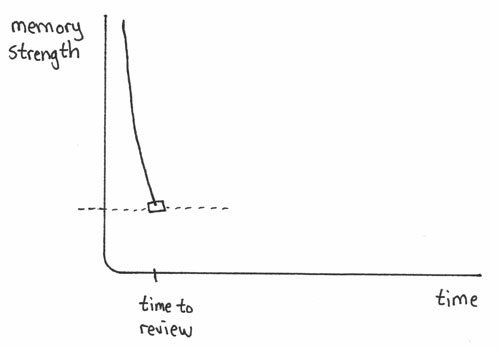
When you review, two things happen. First, the memory is rejuvinated:
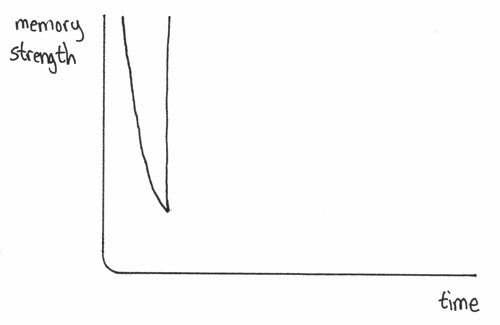
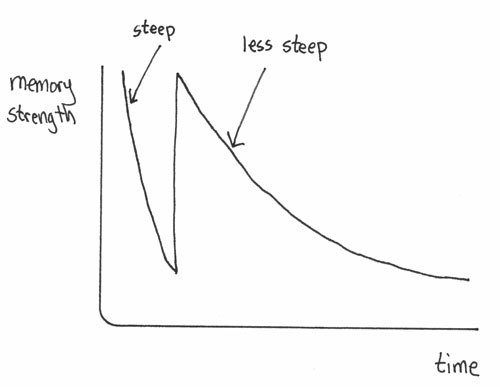
Although the memory fades more slowly after a review, at some point you'll need to refresh the memory again: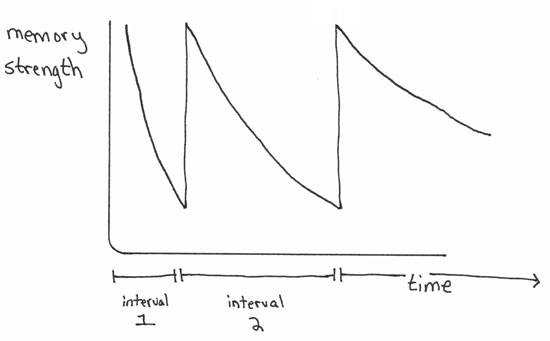
More importantly, the rate at which the memory fades from your mind is decreased (represented by a line on the graph that is less steep):
The power of spaced repetition is in what you do during the increasingly long intervals.
Each day you’ll have a mix of work: quizzing yourself on previously-learned knowledge (that you’re about to forget), and learning new stuff.
There are two possible outcomes when you quiz yourself on previously-learned knowledge.
Most of the time, you'll remember.
Because the algorithm makes statistically educated guesses when you're likely to forget, you usually remember. This means you can wait longer before checking your comprehension again.
Occasionally, you'll forget what you learned.
Traditional spaced repetition then behaves in the opposite way: it shortens the amount of time before your next comprehension check.
The effect: all your knowledge is test-ready
Almost everything you've ever learned is recallable. Some facts you just learned, and you can recall them easily. Some facts you've reviewed recently, so these are fresh in your head, too.
The facts you haven't reviewed in months or years are also recallable -- because you've reviewed them several times, each time strengthening your memory of those facts.
Time savings are enormous
Repeatedly checking your understanding may seem like unnecessary extra work. But after the first few reviews, the amount of time before a memory will expire is measured in weeks, months, or years.
The real potential wasted time is forgetting what you've already spent so much time learning -- and having to learn it again.
You’re already familiar with this. Just think back to every exam you crammed for… could you still pass those exams today? If you had used spaced repetition, you could!
Remember: it's a marathon, not a sprint
True fluency in Mandarin Chinese requires a robust reserve of knowledge (words, grammar, chengyus, etc.) to call upon. You'll be in the game for at least half a year (to be conversational), or several years (to reach real fluency).
How you approach the memorization game is up to you. Choose poorly and you will feel like you are making little progress, no matter how long you study. Choose wisely, and within a few months of dedicated study, a new world will be open for you.